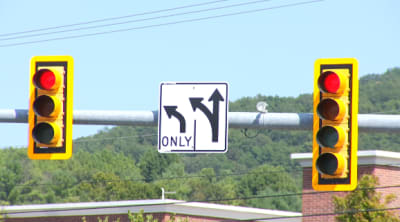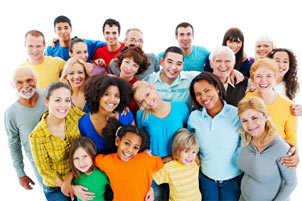
But I remember this: the gentleman driving the other car was alert and luckily stopped as quickly as I did. And then – wait for it – he smiled and waved at me! I think he even motioned me on through. His actions seemed to say, with all good humor, “careful, there, young man! You probably want to live a few more years, and those kinds of stunts won’t help you.” There was not an ounce of (deserved) condemnation in his cheery, all-forgiving response.
I still remember that reaction and the positive effect it had (and still has) on me – then and now. I learned a lot in about 3 seconds there at that junction (pun intended) in my life. My new friend’s response had become a part of my education. (I wonder what lesson I’d have learned if I pulled that today!)
I’ve recalled this incident recently for some overlapping reasons. First, I recently re-encountered Mark Twain’s famous quote “Education is what you must acquire without any interference from your schooling.” I’ve always liked that quote, but I’ve always kinda viewed it as a tiny bit cantankerous, which I suspect it was. Lately, however, I’ve been viewing it as less cantankerous and much more profound. Twain had a way of combining the two, didn’t he?
I often wonder, in our society’s attempts at defining what we want education to be and do, if we focus too narrowly. Isn’t a person’s education, as Twain and others point out, distinctly more than what happens in the classrooms of school buildings? Well, of course, it is, but . . .
 The rub here is that this means the burden of ‘educating our children’ then becomes so much broader. It means that WE – as individuals, parents, and society in general – share that burden with teachers and schools, and probably more than we’d like to admit. It means, among lots of other things, that children often learn important things from the actions of society in general (and family in particular) and from individuals around them – much as I did at that stoplight decades ago. This learning becomes part of their education, as well.
The rub here is that this means the burden of ‘educating our children’ then becomes so much broader. It means that WE – as individuals, parents, and society in general – share that burden with teachers and schools, and probably more than we’d like to admit. It means, among lots of other things, that children often learn important things from the actions of society in general (and family in particular) and from individuals around them – much as I did at that stoplight decades ago. This learning becomes part of their education, as well.
(In passing, I note that our shared responsibility for eduction in these areas also means we need to think twice when we jump on the ‘blame the teachers for everything’ bandwagon that seems so prevalent today.)
There’s so much more to explore here! But for today, let’s take these thoughts and return to that stoplight. I’ve often thought about the good humor and civility that man showed – even as I unintentionally tried to mangle both of our cars. We talk a lot about civility – and the general lack of it – these days. I’m reminded of our civics discussion in this space last time. And again, I wonder: Whether or not we teach a ‘civics’ or government class, or even give an exam to all graduates, what are we teaching our future citizens about civility? (Note, incidentally, that civics and civility have the same roots.) Or – phrased another way – what are they learning as they watch us?
What are our future citizens learning at their own personal ‘stoplights’ of life? We probably have dozens of chances a day to influence those lessons – for them, and even for us and those around us. What will they learn from us?
I am guessing that, today, an event similar to the one you describe would probably elicit an extended Facebook rant from the offended driver.
I am finding that the points you make are pretty real for me each day as, for better or worse, I am the primary male role model for Jagen. And, I am finding, in the age of social media, that “raising” a teenager for the third time is more challenging than it was for the first two times!
I’ll bet!! On the other hand, it could also be that, back then, with our first ones, we were more oblivious to what we were (or weren’t) doing!? 🙂
Kidding aside, Jagen is lucky (as is his mother! :-)) to have you as a role model for him.